More than 60 scientists and education experts from Ho Chi Minh City National University recently participated in a discussion to solicit opinions for the Program "Improving training capacity and basic scientific research at Ho Chi Minh City National University to reach advanced levels, on par with the region and the world in the period 2025-2030, vision 2045".
The goal of the Program is to make basic scientific research the foundation for developing national engineering, technology, and innovation, nurturing scientific talents, and creating a premise for inventions and mastering strategic technologies, contributing to rapid and sustainable development, promoting social progress, enriching the treasure trove of human knowledge and Vietnamese culture.
By 2030, Mathematics, Physics, Chemistry, Environmental Science, Economics, Management, and Languages will be in the top 100-150 in the world; Biology and Earth Sciences will be in the top 200-250 in the world according to the QS rankings.
3 pillars of Program implementation
The program "Improving the capacity of training and basic scientific research at Ho Chi Minh City National University to reach advanced levels, on par with the region and the world in the period 2025-2030, vision 2045" is designed with a synchronous approach, combining talent development, investment in promoting deep integration of basic research with strategic technologies, innovation, and development of modern research infrastructure.
Accordingly, the three pillars of the Program implementation include: Developing scientific talents in the fields of basic science and interdisciplinary science; Integrating basic research with strategic technologies and innovation; Building modern research infrastructure, synchronized with digital transformation.
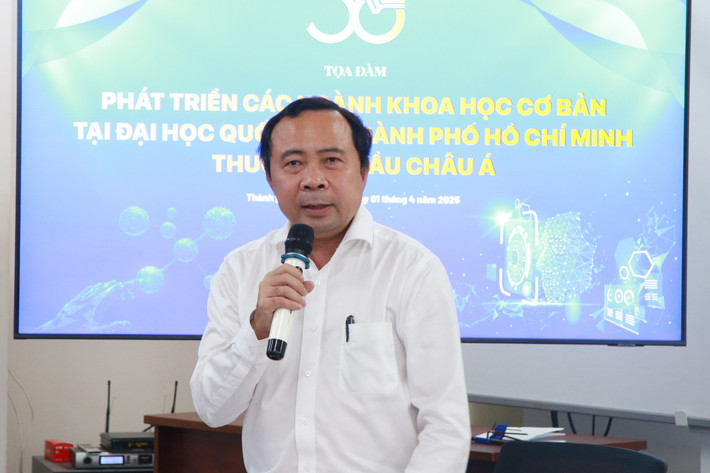
In the pillar of developing scientific talents in the fields of basic science and interdisciplinary science, the program will exempt tuition fees and provide scholarships for students and postgraduates studying basic science. Attract and sponsor outstanding young scientists and leading scientists to work at Ho Chi Minh City National University.
At the same time, innovate training programs in basic sciences, linked with strategic technologies; develop MOOC subjects for basic sciences. Improve teaching capacity of mathematics and science (STEM) for university lecturers and general teachers; organize STEM experiential activities for students.
In the pillar of integrating basic research with strategic technologies and innovation, the program develops strong research groups in Mathematics, Physics, Chemistry, Biology, Earth Sciences, and Marine Sciences associated with strategic technologies. Develop strong research groups in the fields of social sciences, including philosophy, sociology, psychology, economics, linguistics, anthropology, political science, history, geography, law, and communication.
In addition, develop centers of excellence in strategic technologies, including: artificial intelligence, chip - semiconductor, biotechnology - biomedicine, pharmaceutical technology, materials technology, nuclear energy and renewable energy. Establish innovation centers.
With the pillar of building a modern research infrastructure, synchronized with digital transformation, Ho Chi Minh City National University will establish a data center to serve basic scientific training and research; establish 3 modern laboratories to serve training and research in physics, chemistry, and biology; and establish an interdisciplinary research laboratory.
Opportunities to promote the development of basic scientific research fields
At the seminar, Associate Professor Dr. Vu Hai Quan, Director of Ho Chi Minh City National University, said that in recent years, Ho Chi Minh City National University has achieved many outstanding achievements in research and training in basic and interdisciplinary sciences. In 2024 alone, Ho Chi Minh City National University had more than 3,000 scientific articles published in prestigious international journals in the ISI/Scopus category, of which more than 45% were in the field of basic sciences.
Ho Chi Minh City National University is the leading unit in the country in terms of the number of world-ranked training programs (18 ranked programs, of which 15 programs are ranked in the world's top 500, many programs are in the field of basic sciences); 154 programs meet international accreditation standards.
These outstanding achievements, together with a strong and talented faculty in the field of basic sciences (10 Professors, 71 Associate Professors and 330 PhDs) and a strongly developed cooperation network with domestic and foreign business and academic partners, are the premise for Ho Chi Minh City National University to effectively implement the Program.
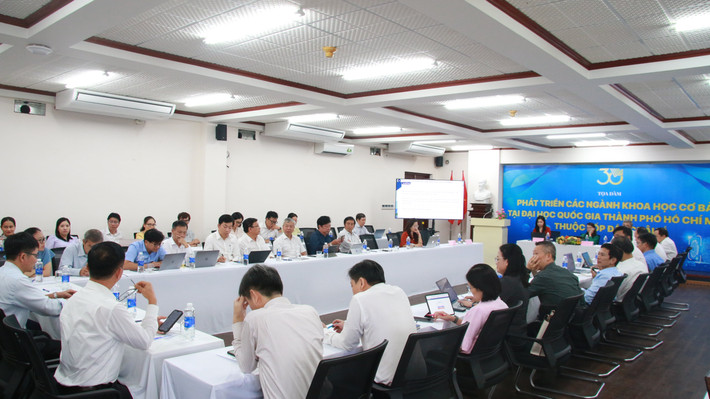
Discussing at the seminar, representatives of the leaders of member units and scientists all agreed with the Program. Scientists said that this is an opportunity for Ho Chi Minh City National University to promote the development of basic scientific research fields.
Professor Le Van Viet Man, University of Technology, said that to conduct basic scientific research, there must also be a team in the fields of engineering technology and applied science. Therefore, the development of basic scientific talent needs to pay more attention to the team outside the basic science fields. At the same time, Ho Chi Minh City National University should provide specific topics in each field of basic science.
Associate Professor Dr. Nguyen Van Thuan, International University, suggested that basic science does not only include the branches of mathematics, physics, chemistry, and biology. All fields of science have basic research. Therefore, it is necessary to clarify the concept of basic science in the Program.
For the pillar of developing scientific talent in the fields of basic science and interdisciplinary science, it is necessary to supplement and improve postgraduate training capacity (master's students, doctoral students) equivalent to that of advanced countries in the region and the world.
Prof. Dr. Vo Van Sen, former Rector of the University of Social Sciences and Humanities, proposed defining the term “social sciences and humanities”, building a foundation of basic science specific to the development of scientific talents in the fields of basic science and interdisciplinary science, investing more in basic science such as implementing the standard curriculum system of Ho Chi Minh City National University for the basic program.
According to Associate Professor Dr. Nguyen Tuyet Phuong, University of Natural Sciences, the draft needs to add solutions to strengthen scientific research cooperation with basic research groups around the world. This cooperation will help develop basic scientific research groups of Ho Chi Minh City National University. At the same time, the Program should have content to combine with businesses in research and development activities.
Dr. Tran Thanh Long, University of Economics and Law, emphasized that it is necessary to pay attention to socialization and attract resources from businesses when implementing basic scientific research.
Source: https://daibieunhandan.vn/dh-quoc-gia-tp-ho-chi-minh-de-xuat-mien-hoc-phi-cho-sinh-vien-hoc-vien-nganh-khoa-hoc-co-ban-post409151.html





![[Photo] Solemn opening of the 9th Session, 15th National Assembly](https://vphoto.vietnam.vn/thumb/1200x675/vietnam/resource/IMAGE/2025/5/5/ad3b9de4debc46efb4a0e04db0295ad8)
![[Photo] President Luong Cuong presided over the welcoming ceremony and held talks with Sri Lankan President Anura Kumara Dissanayaka](https://vphoto.vietnam.vn/thumb/1200x675/vietnam/resource/IMAGE/2025/5/5/bbb34e48c0194f2e81f59748df3f21c7)














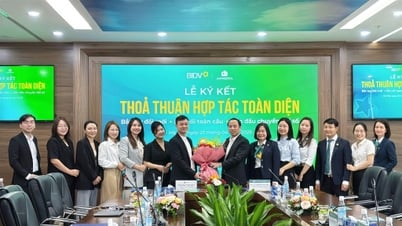


![[Photo] National Assembly delegates visit President Ho Chi Minh's Mausoleum](https://vphoto.vietnam.vn/thumb/1200x675/vietnam/resource/IMAGE/2025/5/5/9c1b8b0a0c264b84a43b60d30df48f75)







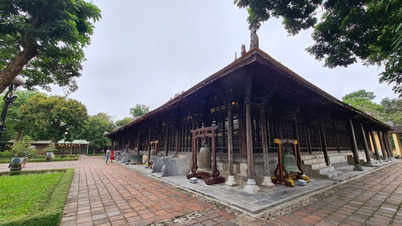










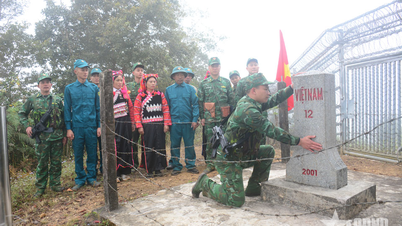







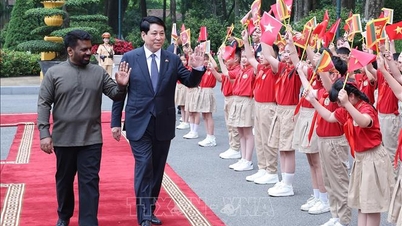

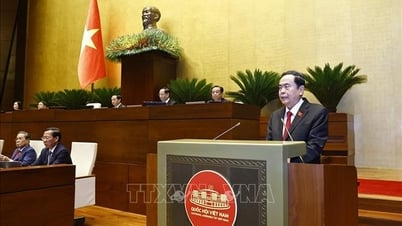

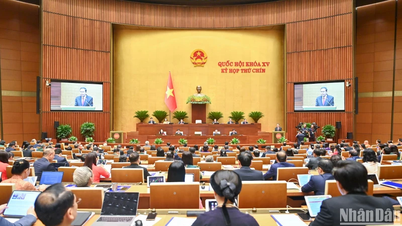


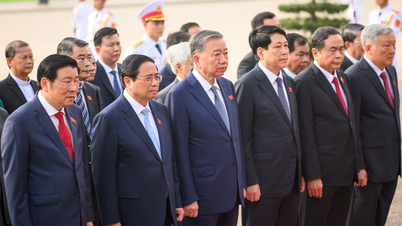






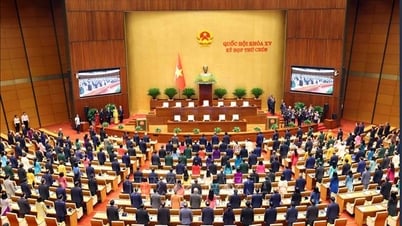









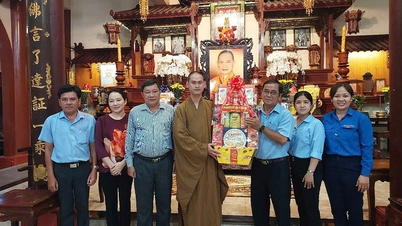













Comment (0)